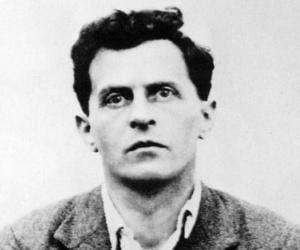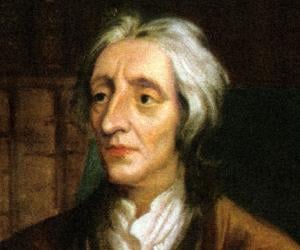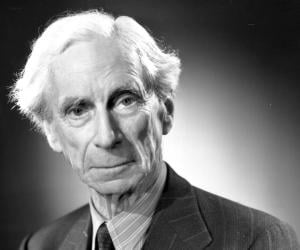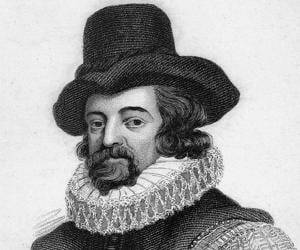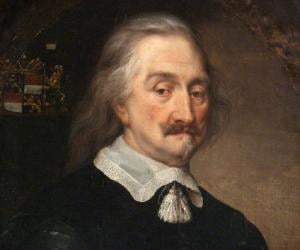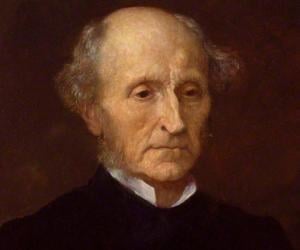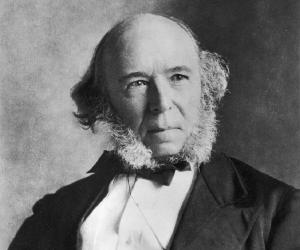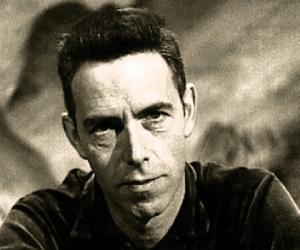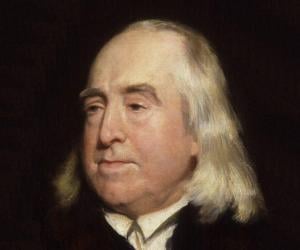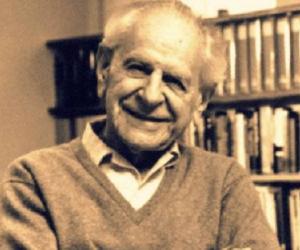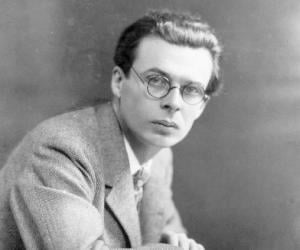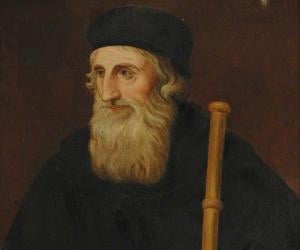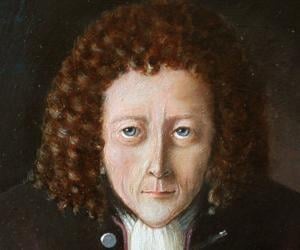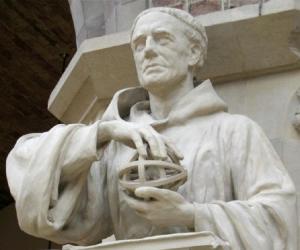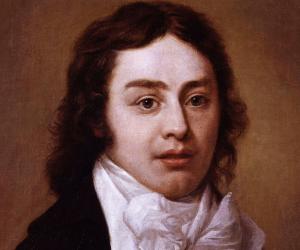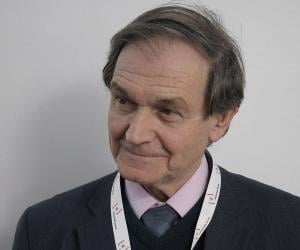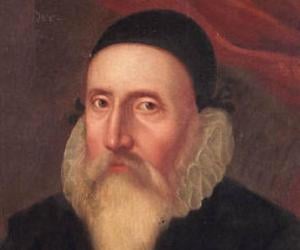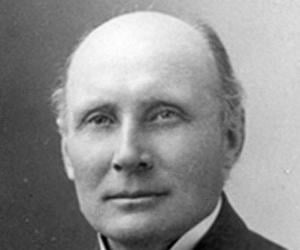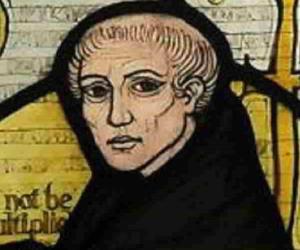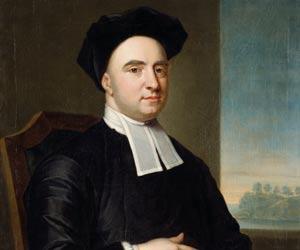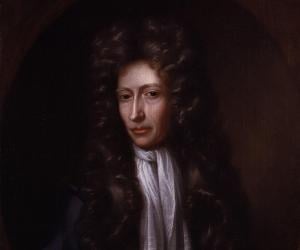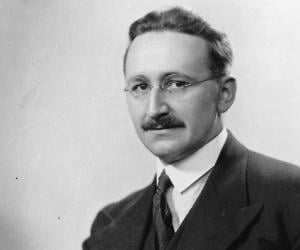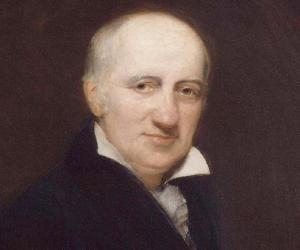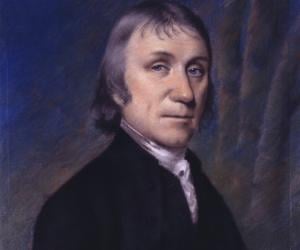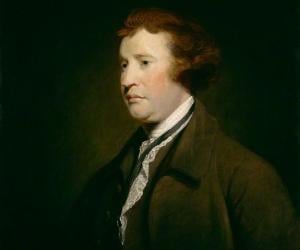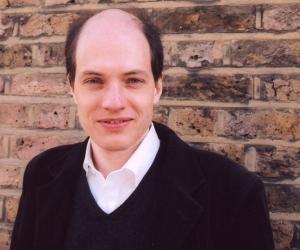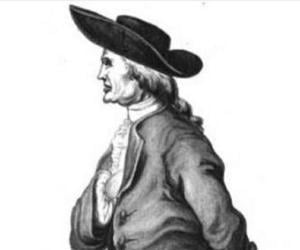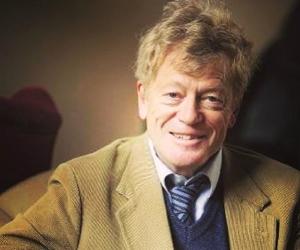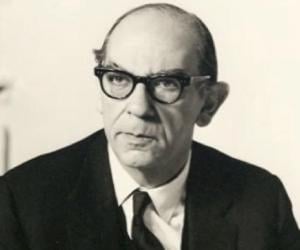Austrian-British philosopher Ludwig Wittgenstein is remembered for his works related to logic, the philosophy of mind, the philosophy of mathematics, and the philosophy of language. He taught at the University of Cambridge for many years. He published only one book during his lifetime. Most of his manuscripts were collected later and published posthumously.
Bertrand Russell was a British polymath and Nobel laureate. His work, which is spread across various fields, has had a considerable influence on philosophy, cognitive science, artificial intelligence, mathematics, linguistics, and logic. Russell is also credited with leading the revolt against idealism in Britain and is regarded as one of the founders of analytic philosophy.
Francis Bacon was a Renaissance philosopher and author who was known as the Father of Empiricism, because of his belief in the scientific method and theory that scientific knowledge can only be created through inductive reasoning and experience. He was later knighted and served as the first Queen's counsel.
Thomas Hobbes was an English philosopher. Widely regarded as the co-founder of modern political philosophy, Hobbes is best known for his influential book Leviathan. Apart from political philosophy, Thomas Hobbes also contributed immensely to various other fields, such as ethics, theology, geometry, history, and jurisprudence.
Herbert Spencer was the man behind the expression “survival of the fittest,” after reading Charles Darwin's iconic work On the Origin of Species. The British anthropologist, sociologist, and philosopher introduced the concept of Social Darwinism, which applied the theory of evolution to societies and social classes.
Alan Watts was a British writer, philosopher, and speaker. He is credited with popularizing Hinduism, Taoism, and Buddhism in the Western world. A prolific writer, Alan Watts wrote one of Buddhism's first bestselling books, The Way of Zen. He also explored psychedelics and human consciousness in his works, such as The Joyous Cosmology and The New Alchemy.
English writer and philosopher Aldous Huxley wrote countless books, including novels, short stories, non-fiction, and poems. He is best remembered for his science-fiction novels Brave New World and Island. The seven-time Nobel Prize nominee was also a Companion of Literature of the Royal Society of Literature and a Vedanta believer.
John Wycliffe was an English theologian, scholastic philosopher, biblical translator, priest, and reformer. He was also associated with the University of Oxford where he served as a seminary professor. John Wycliffe played a key role in the development of the Bible's translation into English. Wycliffe’s works also greatly influenced the teaching and philosophy of a Czech reformer named Jan Hus.
Scientist Robert Hooke, also called England's Leonardo, initially gained recognition as an architect, conducting surveys following the Great Fire of London. He also taught geometry and was part of the Royal Society. He assisted Robert Boyle and eventually developed his own microscope, thus becoming the first to visualize micro-organisms.
George Boole is remembered for pioneering Boolean algebra, a tool used in digital computer circuits. More of a self-taught mathematician, Boole began teaching at 16 and later grew up to be a math professor at Queen’s College, Cork. His work in differential equations and algebraic logic was groundbreaking.
Samuel Coleridge was an English poet, philosopher, theologian, and literary critic. He is credited with co-founding the Romantic Movement in England along with his friend William Wordsworth. Despite struggling from bouts of depression and anxiety throughout his adult life, Samuel Coleridge had a major influence on American transcendentalism and writers like Ralph Waldo Emerson.
Roger Penrose’s contribution to the research related to the black hole and general relativity earned him the Nobel Prize in Physics in 2020. The Emeritus Rouse Ball Professor of Mathematics at Oxford, Roger is also a fellow of Wadham College, St John's College of Cambridge, and University College London.
Anglo-Welsh mathematician, occultist, astronomer, teacher, astrologer and alchemist John Dee is best-remembered as advisor to Queen of England, Elizabeth I. Dee coined the term British Empire and advocated its formation by founding of English colonies in the New World. He had one of the largest libraries in England at the time and wrote on astrology, geography, trigonometry, navigation and calendar reform.
Alfred North Whitehead was a British mathematician and philosopher, best known for his collaboration with his student Bertrand Russell on Principal of Mathematics, a three-volume work on the foundations of mathematics. Also known for his pioneering works on process philosophy and metaphysics, he is credited with developing a comprehensive metaphysical system that differs from most Western philosophies.
William of Ockham, also known as Doctor Invincibilis, is chiefly remembered as one of the pioneers of nominalism. The 14th-cenntury Franciscan friar was also a scholar and philosopher, and laid the foundation of Occam’s razor. His written works include Summa logicae and his commentary on his own lectures, Sentences.
George Berkeley was an Anglo-Irish philosopher who is credited with popularizing a theory called immaterialism, which claims that material substance like tables and chairs can't exist without being perceived by the mind. Berkeley influenced several philosophers like David Hume. Also remembered for his humanitarian work, George Berkeley worked towards creating homes for abandoned children in London.
Robert Boyle was an Anglo-Irish chemist, natural philosopher, inventor, and physicist. Regarded as the first modern chemist, Boyle is often counted among the founders of modern chemistry. One of the pioneers of the scientific method, Robert Boyle is also remembered for his books, including The Sceptical Chymist, which is viewed as a keystone book in chemistry.
A winner of the Nobel Memorial Prize in Economic Sciences, Friedrich von Hayek, was an advocate of classical liberalism. The Austrian-British economist, who was also a political philosopher, co-founded the Mont Pelerin Society. He worked at the London School of Economics, the University of Chicago and the University of Freiburg and authored the popular book, The Road to Serfdom.
Best remembered for his contribution to the chemistry of gases, Joseph Priestley was an English scientist, clergyman, political theorist and educator, who has been credited with discovering oxygen independently, publishing his findings before Carl Wilhelm could. A prolific writer, he has authored 150 works on various subjects including electricity. He also contributed immensely to the advancement of political and religious thoughts.
Anglo-Irish statesman and philosopher, Edmund Burke, was a member of parliament (MP) in the House of Commons of Great Britain for several years. He supported Catholic emancipation and strongly opposed the French Revolution. He felt revolution destroyed the fabric of good society and traditional institutions of state and society. He is considered the philosophical founder of modern conservatism.
Swiss-born British philosopher and author, Alain de Botto,n is best known for his work, Essays in Love, which has sold millions of copies worldwide. He is one of the founders of the educational company, The School of Life, launched in 2008. He is a recipient of "The Fellowship of Schopenhauer", an annual writers' award from the Melbourne Writers Festival.
English natural philosopher, scientist, and a prominent experimental and theoretical physicist and chemist Henry Cavendish is best-remembered for his discovery of hydrogen and his Cavendish experiment. He first recognized that hydrogen, which he termed inflammable air, is a discrete substance which produces water on combustion. He conducted the Cavendish experiment to measure and produce a value for Earth’s density.
Philosopher and author Roger Scruton is best remembered for his work as an editor of The Salisbury Review and for his countless books on topics such as art, sexuality, and political philosophy. He also taught at Boston University and other institutes, and was a skilled pianist and composer, too.
British historian and philosopher Isaiah Berlin is best remembered for his concepts of liberal theory and value pluralism. He is also considered a pioneer of intellectual history. Initially a philosophy lecturer, he later deviated to political science. He also penned iconic works such as The Hedgehog and the Fox.
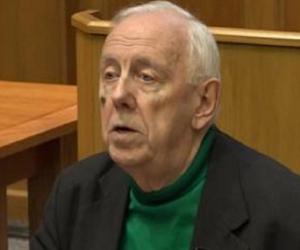
Scottish-American philosopher Alasdair MacIntyre is noted for his contributions to moral and political philosophy. His major writings include Whose Justice? Which Rationality? and After Virtue. The latter is considered to be a significant work of Anglophone moral and political philosophy and an important text in the contemporary revival of virtue theory.
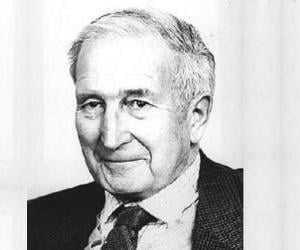
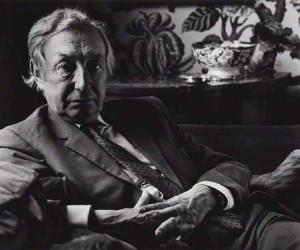
Educated at the prestigious Eton College and the University of Oxford, A.J. Ayer grew up to popularize logical positivism. During World War II, he had been an MI6 spy. Known for his bestselling work Language, Truth, and Logic, he promoted ideas such as emotivist ethics and the verification principle.
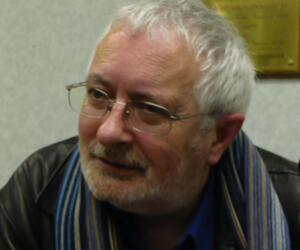
English literary theorist and critic Terry Eagleton, presently serving as Distinguished Professor of English Literature at Lancaster University, is a prominent critic of postmodernism and the New Atheism. His oeuvre includes over forty books among which Literary Theory: An Introduction (1983), which describes the emerging literary theory of the period, is considered to be one of his most notable works.
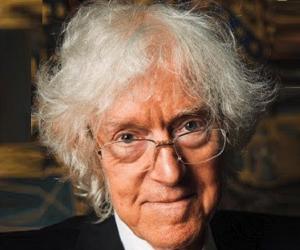
Recipient of the Rolf Schock Prize, British philosopher Derek Parfit is regarded as an important and influential moral philosopher who specialised and made significant contributions in personal identity, rationality, and ethics. He gained attention with his first paper, Personal Identity, and moving on penned notable books like Reasons and Persons (1984) and On What Matters (2011).
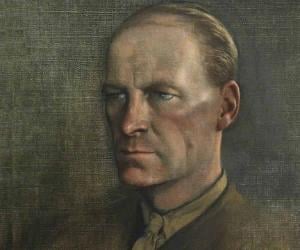
British philosopher Gilbert Ryle, often considered as an ordinary language philosopher, is best-known for his critique of Cartesian dualism. He introduced the phrase ghost in the machine in his book The Concept of Mind as his description of René Descartes' mind-body dualism. He first introduced the notion of thick description, which has greatly influenced cultural anthropologists like Clifford Geertz.
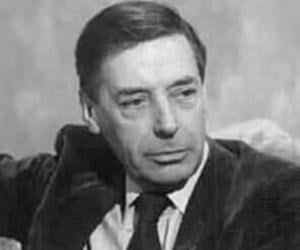
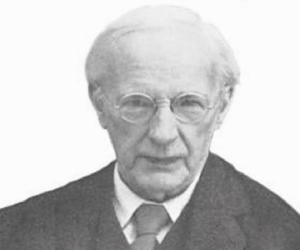
English philosopher G. E. Moore was one of the pioneers of analytic philosophy. Best known for his iconic works such as Principia Ethica, he also taught moral science and philosophy. Moore was also a sworn agnostic and was part of the Cambridge Apostles, a secret society of British intellectuals.

Philosopher J. L. Austin is remembered for his study on ordinary-language philosophy and is also considered a pioneer of the theory of speech acts. His lectures at Harvard were later collected in How to Do Things with Words. He died of cancer while developing a theory on sound symbolism.
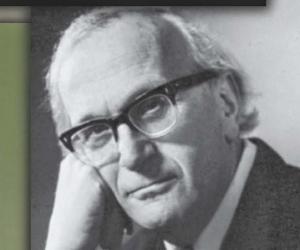
Noted 20th-century political philosopher H. L. A. Hart was a practicing lawyer and had also worked with MI5 during World War II. Known for his iconic works such as The Concept of Law and Law, Liberty and Morality, he made significant contributions to the field of legal positivism.
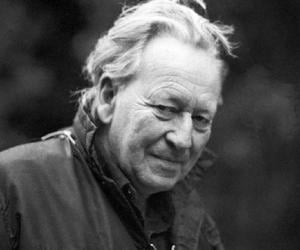
Gregory Bateson was an English anthropologist, social scientist, linguist, and visual anthropologist. Along with his colleagues, he developed the double-bind theory of schizophrenia. Also a cyberneticist, he was part of the core group of the Macy Conferences in Cybernetics. He was a member of philosopher William Irwin Thompson's esoteric nonprofit foundation Lindisfarne Association.
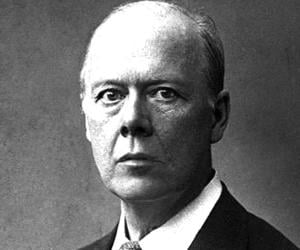
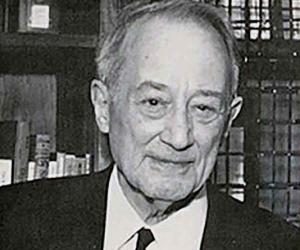
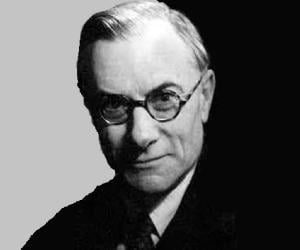
Best known for his 14-volume book A History of Soviet Russia, British historian and diplomat E. H. Carr had been part of the Foreign Office for a long time, before stepping into the academic world. He had also been an assistant editor of The Times and a fellow of both Oxford and Cambridge.
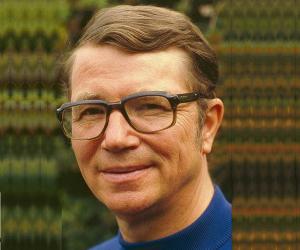
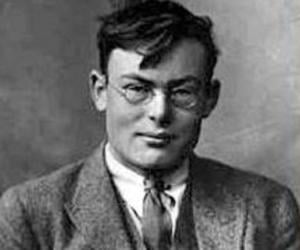
British philosopher and mathematician Frank P. Ramsey was the son of a famed mathematician and later laid down the Ramsey theory of mathematical logic. The Cambridge alumnus also translated Ludwig Wittgenstein’s Tractatus Logico-Philosophicus but died at age 26, probably due to a liver infection he contracted while swimming.
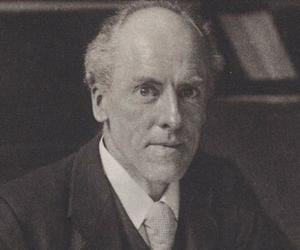
One of the greatest statisticians of all time, Karl Pearson established the first university-level statistics department at UCL and also launched the statistics-oriented journal Biometrika. He was also well-versed in law and believed in eugenics. His The Grammar of Science later inspired Albert Einstein and other scientists.
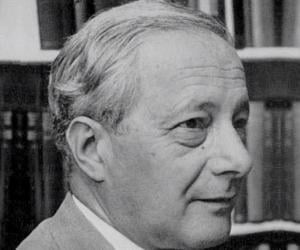
Hungarian-British polymath Michael Polanyi contributed to a wide range of subjects, such as chemistry, philosophy, and economics, and also had a medical diploma. He is best remembered for his research on the adsorption of gases but moved away from chemistry after fleeing to England ro escape the Nazi regime.
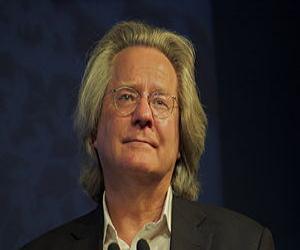
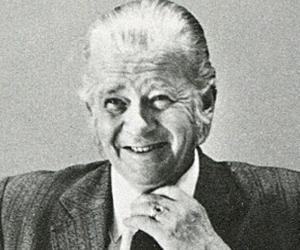
German-born British economist E. F. Schumacher was one of the significant figures behind the formation of Britain’s post-World War II welfare state plans. His ground-breaking book Small Is Beautiful explained how capitalism was detrimental to culture. He also developed the concept of intermediate technology.
